A Bentall procedure is a surgery that is conducted to rectify problems associated with the aorta, the largest artery in the human body. An aorta carries oxygenated blood from the heart to the rest of the body.
The Bentall procedure is used for the treatment of joint disease of the ascending aorta and the aortic valve. During this procedure, a composite graft is used to replace the aortic valve, aortic root, and the ascending aorta. When the replacement of any of these components is not required, then some alternative surgery may be carried out instead of Bentall procedure.
The following are some of the problems with the aorta and aortic valve that are treated with the help of Bentall surgery
Bentall procedure is a complex surgery that must be performed by experienced and skilled cardiothoracic surgeons. It requires a prolonged hospital stay as compared to other cardiac surgeries and the patient requires greater monitoring at the hospital and home.
Some of the factors that affect Bentall surgery cost include the following:
Treatment cost
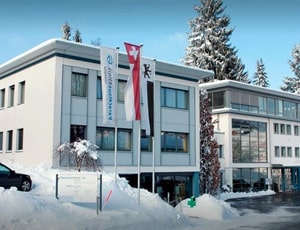
Apart from in-detail treatment procedures available, Paracelsus Clinic located in Lustmuhle, Switzerland has a wide variety of facilities available for International Patients. Some of the facilities which are provided by them are Accommodation, Airport Transfer, Choice of Meals, Interpreter, SIM, TV inside room. Also listed below are some of the most prominent infrastructural details:

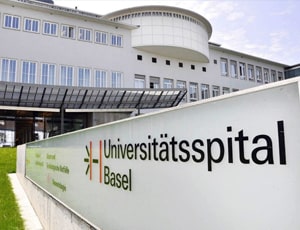
University Hospital located in Basel, Switzerland is accredited by ISO. Also listed below are some of the most prominent infrastructural details:
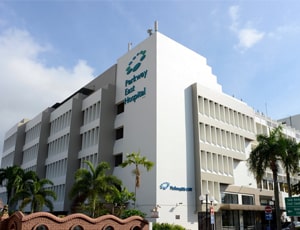
Parkway East Hospital located in Joo Chiat Pl, Singapore is accredited by JCI. Also listed below are some of the most prominent infrastructural details:
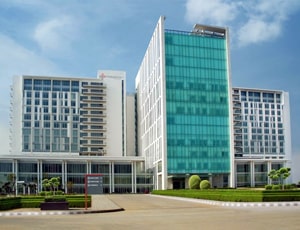
Types of Bentall Procedure in Medanta - The Medicity and its associated cost
| Treatment Option | Approximate Cost Range (USD) | Approximate Cost Range (INR) |
|---|---|---|
| Bentall Procedure (Overall) | 8938 - 13579 | 732460 - 1118777 |
| Modified Bentall Procedure | 7701 - 11372 | 657779 - 926767 |
| Hemispherical Bentall Procedure | 9583 - 13800 | 796468 - 1148391 |
| Valve-Sparing Bentall Procedure | 10085 - 14769 | 838049 - 1225496 |
DOCTORS IN 14 SPECIALITIES
FACILITIES & AMENITIES
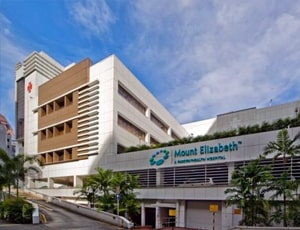
Mount Elizabeth Hospital located in Singapore, Singapore is accredited by JCI. Also listed below are some of the most prominent infrastructural details:
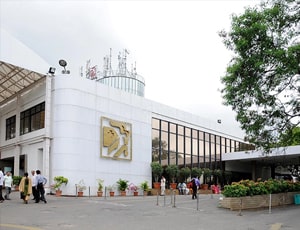
Types of Bentall Procedure in Apollo Hospitals and its associated cost
| Treatment Option | Approximate Cost Range (USD) | Approximate Cost Range (INR) |
|---|---|---|
| Bentall Procedure (Overall) | 8967 - 13587 | 747241 - 1096445 |
| Modified Bentall Procedure | 7748 - 11076 | 659538 - 918673 |
| Hemispherical Bentall Procedure | 9400 - 14097 | 788276 - 1150944 |
| Valve-Sparing Bentall Procedure | 9990 - 14554 | 816291 - 1180402 |
DOCTORS IN 14 SPECIALITIES
FACILITIES & AMENITIES
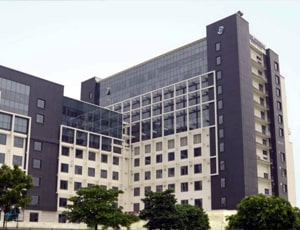
Types of Bentall Procedure in Venkateshwar Hospital and its associated cost
| Treatment Option | Approximate Cost Range (USD) | Approximate Cost Range (INR) |
|---|---|---|
| Bentall Procedure (Overall) | 8127 - 12122 | 662805 - 995065 |
| Modified Bentall Procedure | 7117 - 10154 | 583474 - 828882 |
| Hemispherical Bentall Procedure | 8634 - 12733 | 708751 - 1036883 |
| Valve-Sparing Bentall Procedure | 9161 - 13258 | 750879 - 1079100 |
DOCTORS IN 13 SPECIALITIES
FACILITIES & AMENITIES
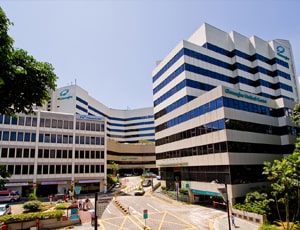
Gleneagles Hospital located in Napier Road, Singapore is accredited by JCI. Also listed below are some of the most prominent infrastructural details:
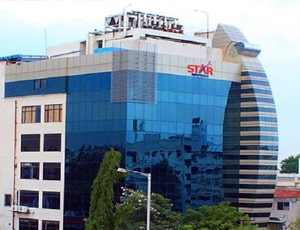
Types of Bentall Procedure in Star Hospitals and its associated cost
| Treatment Option | Approximate Cost Range (USD) | Approximate Cost Range (INR) |
|---|---|---|
| Bentall Procedure (Overall) | 7391 - 11081 | 605666 - 918206 |
| Modified Bentall Procedure | 6589 - 9312 | 536834 - 769963 |
| Hemispherical Bentall Procedure | 8057 - 11551 | 648538 - 962230 |
| Valve-Sparing Bentall Procedure | 8298 - 12209 | 679586 - 1007513 |
DOCTORS IN 12 SPECIALITIES
FACILITIES & AMENITIES
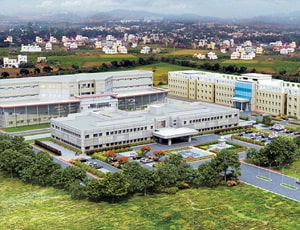
Types of Bentall Procedure in Global Health City and its associated cost
| Treatment Option | Approximate Cost Range (USD) | Approximate Cost Range (INR) |
|---|---|---|
| Bentall Procedure (Overall) | 8853 - 13671 | 731799 - 1094790 |
| Modified Bentall Procedure | 7890 - 11443 | 631863 - 930211 |
| Hemispherical Bentall Procedure | 9537 - 13898 | 795081 - 1163008 |
| Valve-Sparing Bentall Procedure | 10219 - 14333 | 841170 - 1191955 |
DOCTORS IN 14 SPECIALITIES
FACILITIES & AMENITIES
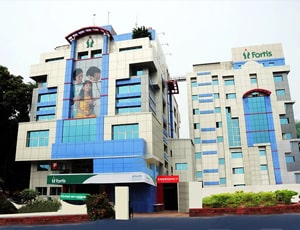
Types of Bentall Procedure in Fortis Malar Hospital and its associated cost
| Treatment Option | Approximate Cost Range (USD) | Approximate Cost Range (INR) |
|---|---|---|
| Bentall Procedure (Overall) | 8141 - 12173 | 662738 - 996574 |
| Modified Bentall Procedure | 7104 - 10176 | 585388 - 832773 |
| Hemispherical Bentall Procedure | 8663 - 12710 | 709637 - 1037338 |
| Valve-Sparing Bentall Procedure | 9141 - 13256 | 750734 - 1087057 |
DOCTORS IN 9 SPECIALITIES
FACILITIES & AMENITIES
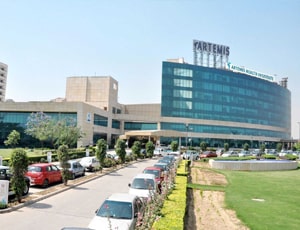
Types of Bentall Procedure in Artemis Health Institute and its associated cost
| Treatment Option | Approximate Cost Range (USD) | Approximate Cost Range (INR) |
|---|---|---|
| Bentall Procedure (Overall) | 8900 - 13651 | 743362 - 1128626 |
| Modified Bentall Procedure | 7993 - 11212 | 658432 - 942951 |
| Hemispherical Bentall Procedure | 9575 - 14103 | 795405 - 1161103 |
| Valve-Sparing Bentall Procedure | 10309 - 14682 | 834202 - 1185203 |
DOCTORS IN 15 SPECIALITIES
FACILITIES & AMENITIES

Types of Bentall Procedure in Sterling Wockhardt Hospital and its associated cost
| Treatment Option | Approximate Cost Range (USD) | Approximate Cost Range (INR) |
|---|---|---|
| Bentall Procedure (Overall) | 8111 - 12184 | 664974 - 1000948 |
| Modified Bentall Procedure | 7075 - 10148 | 584044 - 831063 |
| Hemispherical Bentall Procedure | 8669 - 12707 | 705529 - 1044660 |
| Valve-Sparing Bentall Procedure | 9107 - 13234 | 748423 - 1084417 |
DOCTORS IN 14 SPECIALITIES
FACILITIES & AMENITIES
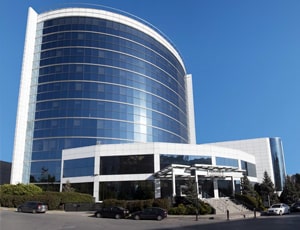
Types of Bentall Procedure in Medicana International Istanbul and its associated cost
| Treatment Option | Approximate Cost Range (USD) | Approximate Cost Range (TRY) |
|---|---|---|
| Bentall Procedure (Overall) | 20663 - 27592 | 600819 - 835975 |
| Modified Bentall Procedure | 18252 - 24258 | 532960 - 737824 |
| Hemispherical Bentall Procedure | 21776 - 29867 | 643008 - 877703 |
| Valve-Sparing Bentall Procedure | 22128 - 31642 | 669587 - 952992 |
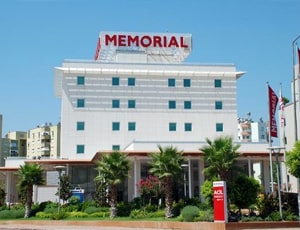
Types of Bentall Procedure in Memorial Antalya Hospital and its associated cost
| Treatment Option | Approximate Cost Range (USD) | Approximate Cost Range (TRY) |
|---|---|---|
| Bentall Procedure (Overall) | 20264 - 28138 | 622371 - 838389 |
| Modified Bentall Procedure | 17985 - 24693 | 551440 - 734339 |
| Hemispherical Bentall Procedure | 21455 - 29038 | 630351 - 893658 |
| Valve-Sparing Bentall Procedure | 22677 - 31077 | 681738 - 946815 |
A Bentall procedure is a surgery conducted to correct problems associated with the largest artery in the body, the aorta. The aorta carries oxygenated blood from the heart to the rest of the body. Thus, any problem with this important artery may affect the rest of the body and cause serious complications.
A Bentall operation is conducted to correct problems associated with the aorta. Some of the problems that are resolved with the help of a Bentall surgery include the following:
Bentall procedure recovery time varies from one patient to the other. It actually depends on the overall health of the patient and how successfully the procedure was conducted. Immediately after the procedure, you can expect to spend a day or two in the intensive care unit (ICU). During your stay in the ICU, you will be connected to machines that monitor your vital signs such as breathing, temperature, heart rate, and blood pressure.
You should take time to recover well after the surgery. Do not rush things and start with the normal routine as soon as you are shifted back home. You are likely to spend a few days in a normal hospital room before discharge. The surgeon will monitor your progress and give a green signal for discharge at the right time. You must take care of the wound and stitches once you get home. Additionally, make a note of any discomfort, palpitations, pain, fever, blurred vision, and poor appetite and inform it to your doctor. It may take around six to eight weeks to regain normal mobility. Take help from a nurse or a family member while lying down or standing up. You will be taught a safer technique to roll and sit in bed. Remember to follow whatever your doctor suggests you to minimize your recovery duration.
Ask your healthcare adviser for the best multiple options and choose the one that meets your expectations
Bentall Procedure package cost in Switzerland has different inclusions and exclusions. The cost quoted by some of the best hospitals for Bentall Procedure in Switzerland generally covers the pre-surgery investigations of the patient. The treatment cost usually includes the expenses related to hospitalization, surgery, nursing, medicines, and anesthesia. There are many things that may increase the cost of Bentall Procedure in Switzerland, including prolonged hospital stay and complications after the procedure.
There are many hospitals that perform Bentall Procedure in Switzerland. Some of the most renowned hospitals for Bentall Procedure in Switzerland include the following:
After discharge from the hospital, the patient has to stay for another 28 days in the country for complete recovery. This duration of stay is recommended to complete all the necessary follow-ups and control tests to ensure that the surgery was successful.
Apart from the Bentall Procedure cost, there are a few other daily charges that the patient may have to pay. These are the charges for daily meals and accommodation outside the hospital. The per day cost in this case may start from USD 50 per person.
Bentall Procedure in Switzerland is offered in almost all metropolitan cities, including the following:
The average duration of stay at the hospital after Bentall Procedure is about 7 days for proper care and monitoring. The doctors team review the patient's recovery during this time with the help of blood tests and imaging scans. Once they feel that everything is on track, the patient is discharged.
There are more than 2 hospitals that offer Bentall Procedure in Switzerland. Such hospitals have the required infrastructure and a dedicated unit where patients can be treated. These hospitals comply with all the rules and regulations as dictated by the regulatory bodies and medical association in Switzerland